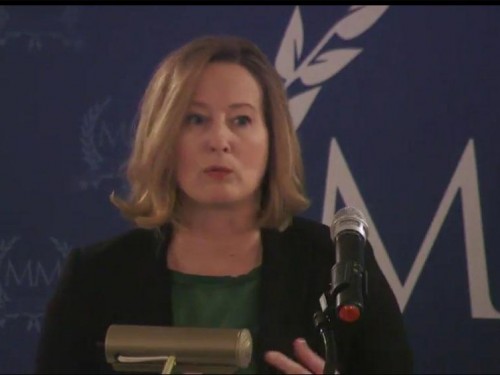Uncertainty can affect monetary policy actions, says Senior Deputy Governor Wilkins
Uncertainty is an important consideration for monetary policy decisions and, depending on the circumstances, it can prompt central banks to be more, or less, aggressive, Senior Deputy Governor Carolyn A. Wilkins told the Money Marketeers of New York University in a speech today.
“Central bankers have well-established methods to deal with uncertainty in the conduct of monetary policy,” Senior Deputy Governor Wilkins said. “If you want to understand why policy actions were taken and what actions might be in store, you need to understand both the Bank’s base-case projection and how the Bank has factored uncertainty into its policy decisions.”
In her remarks, Senior Deputy Governor Wilkins elaborated on several observations: uncertainty is a fact of life, monetary policy becomes asymmetric when uncertainty is embraced and uncertainty is not a reason for paralysis in decision making.
“Whether it is about how aggressive or how cautious policy should be—getting the dosage right demands sound judgment about complex trade-offs,” she said. “Checking the logic of this judgment through formal modelling exercises is good practice.”
Senior Deputy Governor Wilkins illustrated through two case studies how uncertainty can affect policy-makers’ decisions. In the first one, policy-makers confronted with the prospect of reaching the effective lower bound on interest rates choose to be more aggressive than a model would predict, as occurred in the aftermath of the 2008 financial crisis. In the second case, heightened uncertainty can lead the central bank to be more cautious about changing its policy interest rate. This can happen when policy-makers are concerned that inflation could stray from the target range, when they are unsure about the impact their policy measures are having on the real economy or when they want to avoid reversing policy actions within a short time span.
“Caution has its limits, because there are complex trade-offs involved, including those related to financial stability,” Senior Deputy Governor Wilkins said, highlighting some of the research that the Bank is undertaking to help better quantify these trade-offs.

